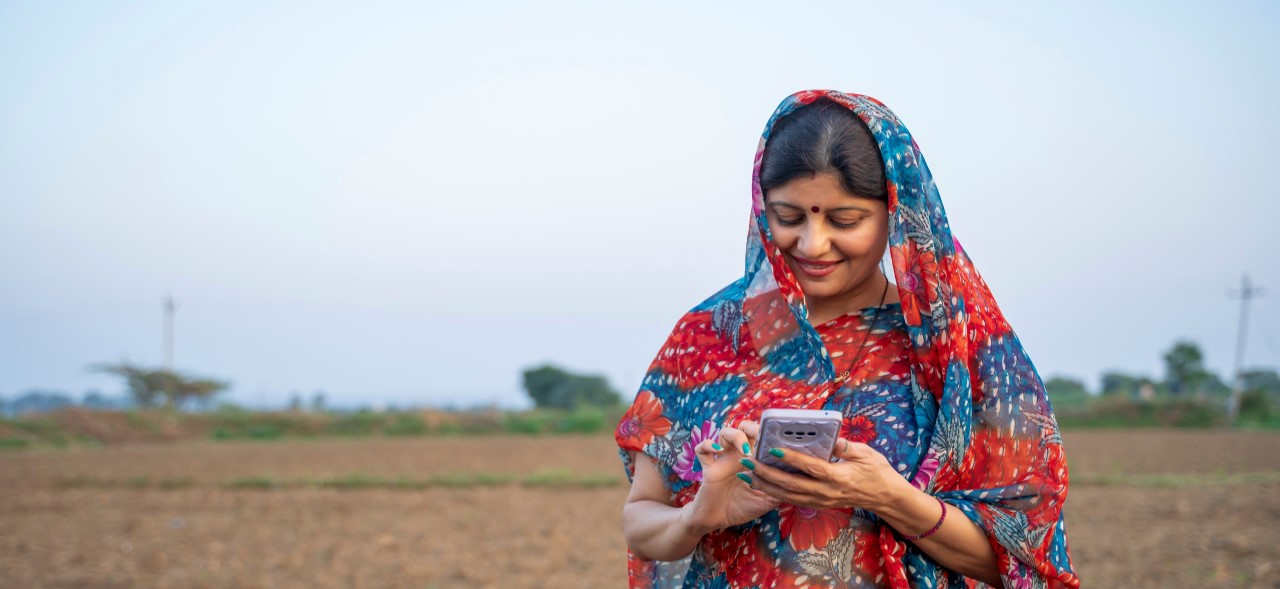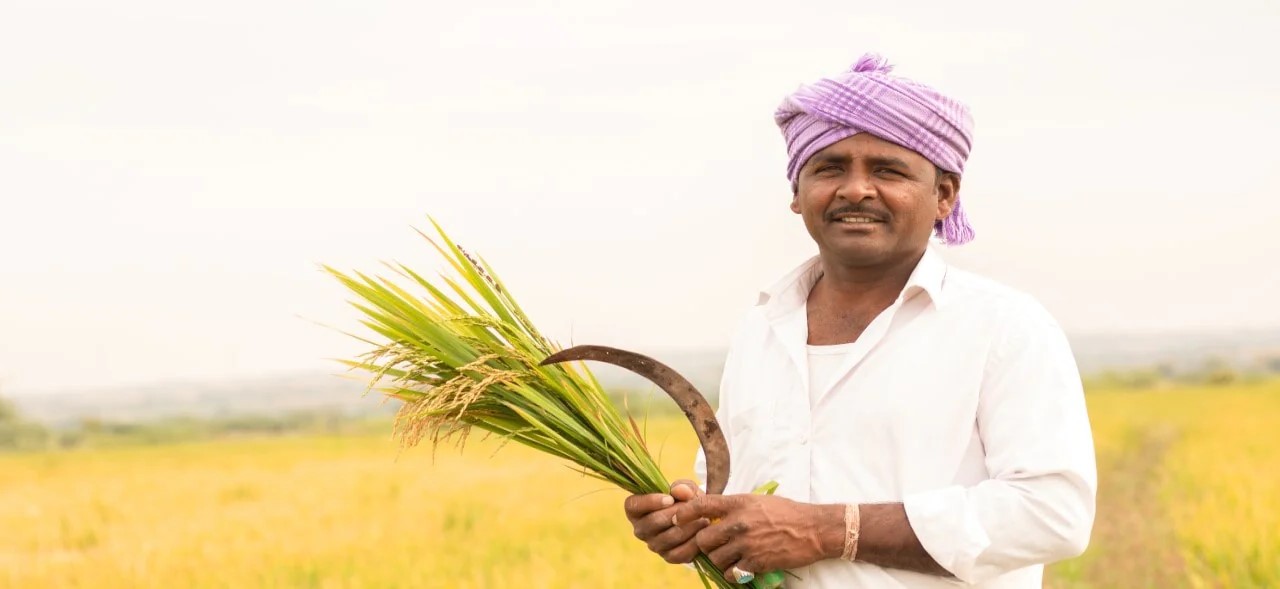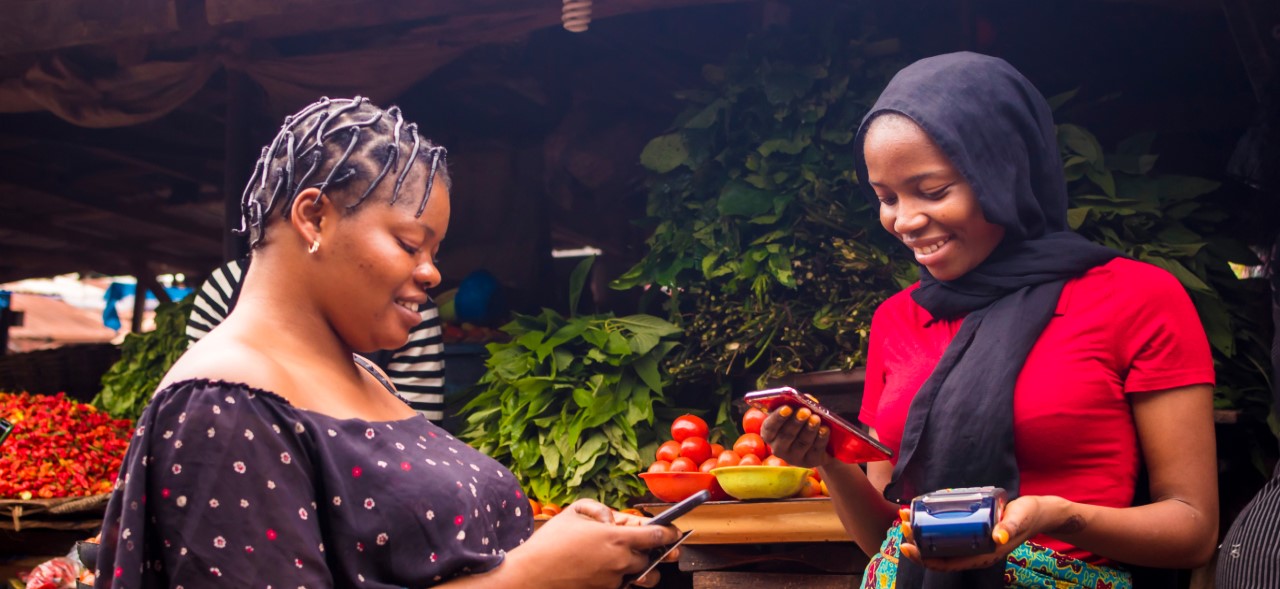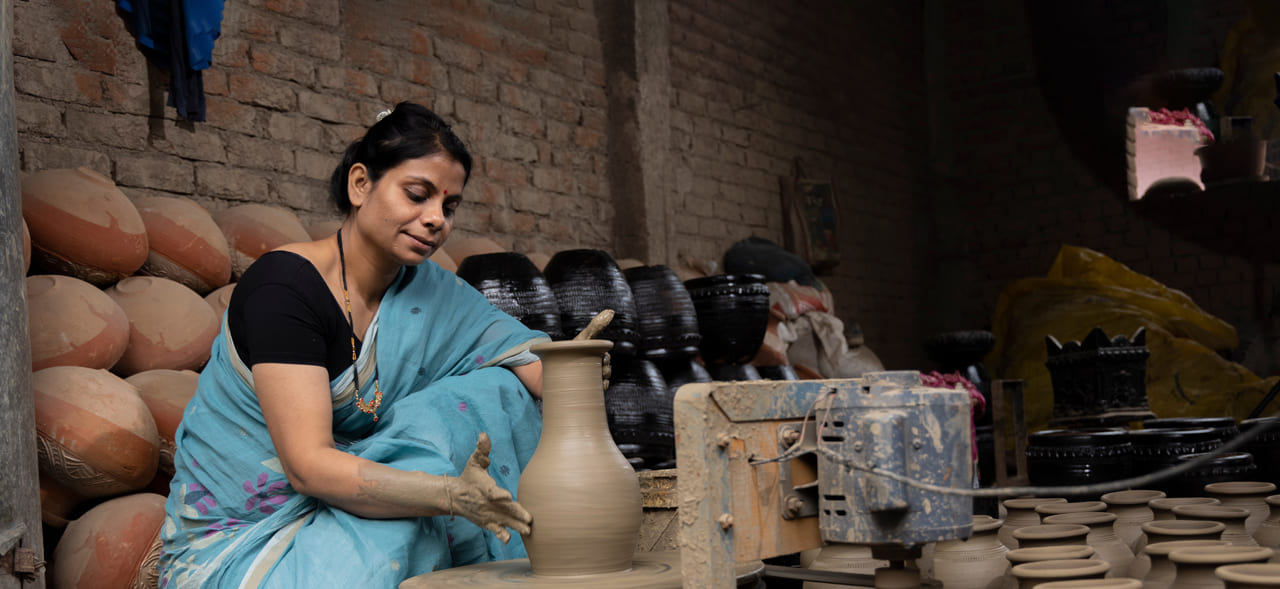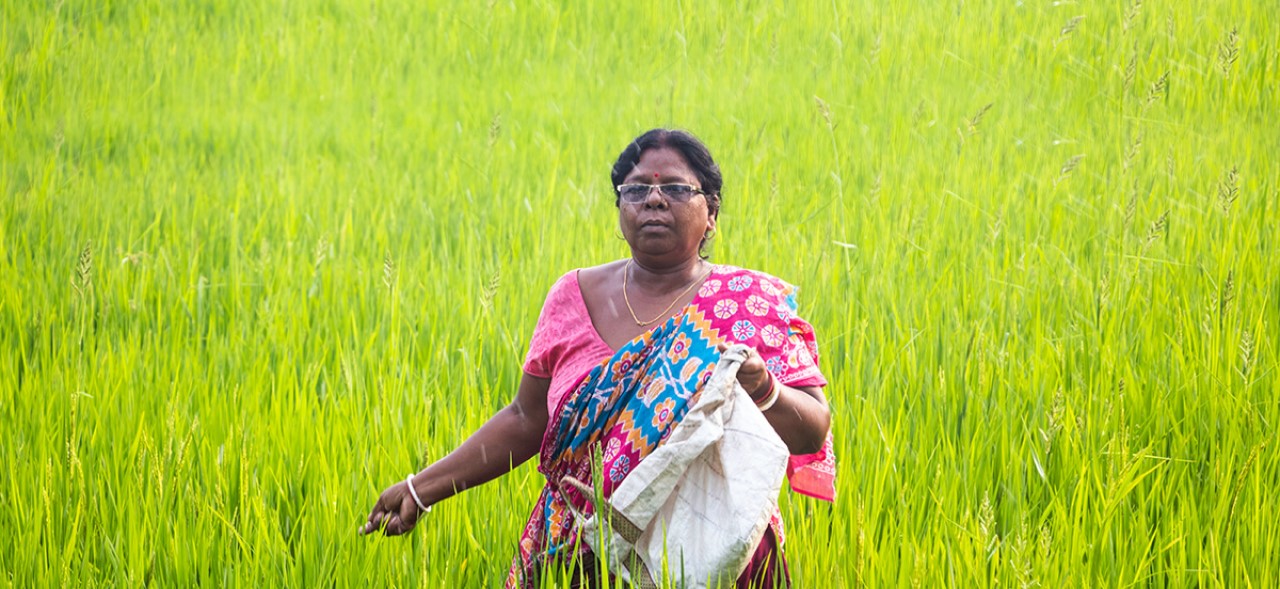Findex reports 35% account inactivity in India. While many experts presume it is because of the number of PMJDY accounts, the reasons could include many others. PMJDY may not be the reason for higher dormancy in India as the reported dormancy in PMJDY is 17%. In this note, the authors discuss potential reasons for account dormancy and advocate a shift in our approach to financial inclusion.
Blog
Impact of climate change on smallholders and their coping strategies
Smallholder farmers living in the floodplains of the River Ganges are highly vulnerable to climate change, especially floods. They face many barriers to accessing financial services that could help them cope with natural disasters. Our research identified seven crucial factors that can help build their climate resilience. Strategies such as arranging emergency funds, relocation, job opportunities in cities, and borrowing from moneylenders and financial institutions can enable smallholders to prepare for hazards and recover quickly from them.
Women risk and consumer protection in online leading platforms in Indonesia
The financial technology (FinTech) industry has flourished amid the Indonesian digital economy’s significant growth. FinTech companies, regulated by Indonesia’s Financial Services Authority (OJK), conduct digital payments, online loans, and financial planning activities. Among these, online lending has grown rapidly since its outset in 2016. OJK’s data revealed that the amount of fintech lending rose from just IDR 10,917.5 billion in 2020 (~USD 694,552,640.40) to IDR 89,951.83 billion in May 2022 (~USD 5,723,231.980). The statistics also reveal a growing number of female borrowers on various online lending platforms—9,498,405 in 2021, compared to 7,785,569 male borrowers. Since online loans by nature are easy and fast to obtain, they have proved to be highly attractive for women who lack access to formal loan products.
However, although online loans lead to financial inclusion opportunities for women, they also come with drawbacks. OJK reported 19,711 complaints against illegal loan platforms from 2019 to 2021, with 52.97% suggesting minor to moderate violations and 47.03% reporting serious violations. The Chief of Indonesia’s Consumers Association (YLKI) stated that both legal and illegal loan platforms use threats, violence, and disclosure of borrowers’ personal information as persecution. Various online media sources also reported that online loan consumers have voiced concerns about the high-interest rates.This current situation among women and online lending platforms has prompted MSC and the Department of Criminology, University of Indonesia, to initiate research into this issue. The study will help us understand the restrictions and restraints, and how enforcing a comprehensive consumer protection system helps to minimize the risk. The research uses a qualitative approach through in-depth interviews and FGDs to engage with various stakeholders, such as FinTech policymakers, the Indonesian national police, and representatives from the association of P2P lending businesses.
The report dissemination event was held in Jakarta on 21st March 2023. A public discussion also took place at the event, with panelists from Indonesia’s financial services authority (OJK), the legal aid foundation (LBH), the Indonesian Joint Funding Fintech Association (AFPI), and MoWECP.
We hope that the findings from this study will form a basis for more gender-responsive and socially-inclusive regulations, especially for vulnerable groups, such as women and people from lower income groups.
Choice of channel: Understanding how low- and moderate-income women in Kenya choose channels for financial transactions
MSC conducted a choice of channel study to understand how women in the low- and moderate-income segment in Kenya select a financial channel. We interviewed 49 women across seven locations and covered four occupation types. We used MSC’s flagship DEBIT framework to undertake this exercise and validate the framework in the Kenyan context.
G2P Next in India: Choice, resilience and inclusivity
This policy brief draws on global trends to understand how G2P programs can evolve to address India’s challenges. We look at how expanding beneficiary choice and inclusion while building resilience in social protection programs can bolster the impact of G2P programs. These include potential solutions to strengthen G2P programs, including incorporating mobile phones to deliver G2P funds, building a national database to monitor natural disasters, and creating a social registry to maximize inclusion for all.
Unlocking the potential of Farmer Producer Companies in Bihar: Insights from a diagnostic study
The formation of Farmer Producer Companies (FPCs) has gained significant momentum in Bihar. However, stakeholders do not fully understand their capacity, functioning, and challenges. MSC studied 35 FPCs across 10 districts in Bihar state to address this gap. The study yielded critical insights into FPC operations, management, and sustainability.
